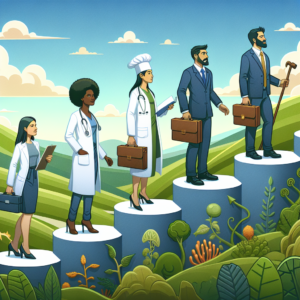Unveiling the Truth: Shocking Labor Law Reforms Reshaping Workers' Rights
[caption id="attachment_34425" align="alignnone" width="764"] Work[/caption]
In recent months, a wave of labor law reforms has swept across various jurisdictions, igniting debates about the future of workers' rights and employer responsibilities. As governments respond to the evolving landscape of work, these legislative changes are reshaping the dynamics between employees and employers. This article delves into the historical context of labor laws, outlines key reforms, assesses their impact on workers, explores employer reactions, presents real-life case studies, and considers the future implications of these changes for the workforce and economy.
Understanding the Context: The Historical Landscape of Labor Laws and Workers' Rights
The evolution of labor laws has been a complex journey marked by social movements, economic shifts, and political changes. Historically, labor rights emerged in response to the exploitation of workers during the Industrial Revolution, leading to the establishment of unions and the introduction of regulations aimed at improving working conditions. Over the decades, significant milestones such as the Fair Labor Standards Act in the United States and various international labor conventions have sought to protect workers' rights, ensuring fair wages, safe working environments, and the right to organize. However, the past few decades have seen a trend toward deregulation in many regions, prompting a renewed focus on the need for robust labor protections in the face of gig economy growth, automation, and global competition.
Key Reforms: An Overview of Recent Legislative Changes Impacting Labor Standards
Recent legislative changes have introduced significant reforms aimed at enhancing labor standards and protecting workers' rights. Key reforms include the expansion of paid family leave, the establishment of minimum wage increases, and the implementation of stricter regulations on workplace safety. In several jurisdictions, laws have been enacted to address the gig economy, granting rights such as minimum wage guarantees and access to benefits for gig workers. Additionally, anti-discrimination laws have been strengthened to promote equity in the workplace, ensuring that marginalized groups receive the protections they deserve. These reforms reflect a growing recognition of the need to adapt labor laws to contemporary work environments and the challenges faced by workers today.
The Impact on Workers: Analyzing How Reforms Affect Employee Rights and Protections
The recent labor law reforms have profound implications for workers, significantly enhancing their rights and protections. For instance, the introduction of paid family leave allows employees to take time off to care for family members without the fear of losing their jobs or income. Minimum wage increases have the potential to lift millions out of poverty, providing a more sustainable living for low-wage workers. Furthermore, the expansion of protections against workplace discrimination fosters a more inclusive environment, empowering employees to report violations without fear of retaliation. However, while these reforms aim to improve conditions, there are concerns about their implementation and the potential for pushback from employers, which could undermine the intended benefits for workers.
Employer Perspectives: Reactions and Adaptations to New Labor Law Regulations
Employers have responded to the recent labor law reforms with a mix of adaptation and resistance. Many businesses are reevaluating their human resources policies to comply with new regulations, investing in training programs to educate staff about the changes, and adjusting compensation structures to accommodate minimum wage increases. However, some employers express concerns that these reforms may lead to increased operational costs, reduced flexibility, and potential layoffs. In response, many companies are exploring innovative solutions, such as implementing technology to streamline operations and enhance productivity. The challenge for employers lies in balancing compliance with the need to maintain a competitive edge in an evolving economic landscape.
Case Studies: Real-Life Examples of Workers Navigating the New Legal Framework
To illustrate the impact of labor law reforms, several case studies highlight how workers are navigating the new legal framework. In California, a gig worker named Maria successfully advocated for her rights under the new gig economy regulations, securing minimum wage and benefits after being misclassified as an independent contractor. Similarly, a manufacturing employee in Michigan, John, benefited from the recent workplace safety regulations, which led to improved safety protocols and a reduction in workplace injuries. These examples underscore the tangible benefits of labor law reforms, showcasing how empowered workers can leverage new protections to advocate for their rights and improve their working conditions.
Looking Ahead: Future Implications of Labor Law Reforms on the Workforce and Economy
As labor law reforms continue to unfold, their implications for the workforce and economy are significant. The ongoing evolution of work, driven by technological advancements and changing societal norms, necessitates a proactive approach to labor regulations. Future reforms may focus on addressing the challenges posed by automation and remote work, ensuring that workers remain protected in an increasingly digital economy. Additionally, as the global labor market becomes more interconnected, international cooperation on labor standards will be crucial to safeguard workers' rights across borders. Ultimately, the success of these reforms will depend on the commitment of both employers and policymakers to foster a fair and equitable labor market that benefits all stakeholders.
The recent labor law reforms represent a critical juncture in the ongoing struggle for workers' rights and protections. As these changes take root, they hold the potential to reshape the future of work, ensuring that employees are treated with dignity and respect. However, the path forward will require vigilance, collaboration, and a commitment to upholding the principles of fairness and equity in the workplace. As society navigates this transformative period, the voices of workers, employers, and advocates will be essential in shaping a labor landscape that meets the needs of all.
